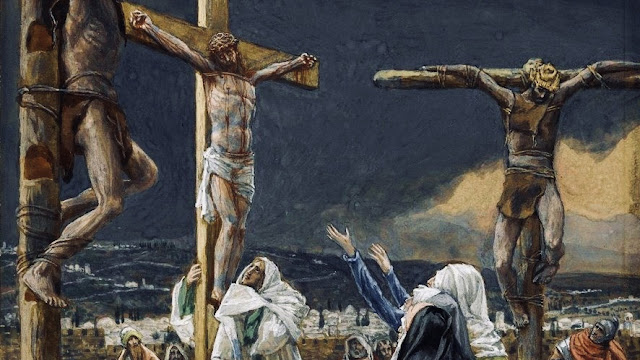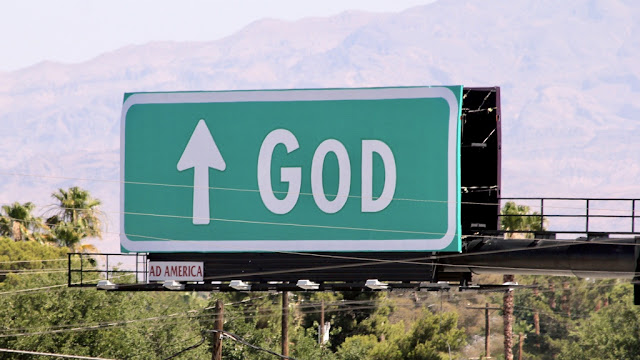Palm Sunday of the Passion of the Lord B
The drama of Christ’s Passion is populated with many
characters, some of whom play obviously pivotal roles and whose names are
familiar: Judas and Pilate and Barabbas; Simon the Cyrenian, Mary Magdalene,
and Joseph of Arimathea. Today,
I’d like to focus our attention on two seemingly minor characters who might
appear to play little more than a supporting role.
The first is the nameless woman who anoints Jesus in
Bethany. All four gospels record
some version of this scene, but only Mark makes it an integral part of his
Passion narrative.
Bethany is what you might call one of the “suburbs” of
Jerusalem, and a place very familiar to Jesus as the home of his dear friends
Martha, Mary, and Lazarus lived there.
Jesus is at a dinner party in another house when this woman breaks open
her jar of rare perfume, and then a heated dispute breaks out. It seems that the rabbis of the time
debated which was the greater act of mercy: to give alms to the poor or to bury
the dead. It’s worth noting that rabbis
who favored burying the dead were ones who believed in a coming resurrection.
Mark tells us that this fragrant ointment—spikenard
important from far distant India—was worth about 300 denarius: 300 of the
silver coins which were a common laborer’s daily wage. Assuming that a person did not work on
the Sabbath, we’re talking about a full year’s salary here—say, $25,000 to
$30,000 in today’s terms. That’s
some mighty expensive cologne! And
suddenly we’re tempted to side with those who decry the waste. Couldn’t all that money have been
better spent?
A question remains: how would a woman in that time and
culture have had that sort of money at her disposal? We can’t, of course, know for sure, but here’s an educated
guess: that it was her dowry—the money that her parents had been setting aside
since the day she was born to accompany her into marriage as she started a new
family. And if that were indeed true,
this nameless woman poured out more than aromatic oil that day. She poured out her future. She poured out her hopes and
dreams. She completely wed herself
to Jesus and his mission. She was
all in.
We encounter this woman at the beginning of the Passion; the
second character is one we meet near the end: the Roman centurion. What was a centurion? He was an official in the Roman army
appointed to lead about 100 other men.
He had generally proven himself in battle and risen up through the
ranks, hardened by many campaigns.
How had this centurion been “rewarded” for his dutiful service? By being assigned—likely far from
home—to a backwater province in constant rebellion, and there to preside over
the execution of criminals.
How many crucifixions had he supervised in order to verify
that the condemned were actually dead?
We know that Jesus wasn’t the only one who received a capital sentence
that Friday. How many messiahs had
this centurion already seen die on a cross? There were many promising to lead their people to freedom in
this occupied territory. They sought
liberation through violent revolt against their oppressors; here was one who had
instead preached, “Love your enemies and pray for those who persecute you.”
After so many crucifixions, with so many reasons to be
cynical, what could there possibly have been about this man that, when he
breathed his last, would cause a pagan centurion to profess, “Truly this man
was the Son of God”?
The woman at Bethany provides us with a powerful lesson
about how we ought to approach the beginning of this Holy Week: that our walk
with Jesus during his final days and hours ought not be done begrudgingly, but
with great generosity; that our motivation, to be true, can only be the deepest
love—and love, of course, seeks not to do just the minimum required, but
instead aims to give as much as possible to one’s beloved, to give one’s whole
self.
And the Roman centurion helps us to recognize the one we will
face at the end of this long Way of the Cross. What did he see that was so different about Jesus at his
death? That his last breath wasn’t
taken from him by force; it was something freely given. Jesus was not so much executed by the
authorities, as offering himself willingly in sacrifice. This man was no helpless victim of
brutality; in fact, this man was in perfect control…of everything!
What the centurion saw was the fulfillment of words Isaiah
had put on the promised Messiah’s lips more than 500 years before: I gave my back to those who beat
me. I yielded by cheeks to
those who spit and plucked my beard.
I did not rebel, did not turn back, from the difficult mission entrusted
to me, knowing that—in the end—I would not be put to shame. He could sing right along with St.
Paul: Jesus did not cling to any divine prerogatives, but took on our full
human likeness, took the form of a slave, humbled himself, emptied himself—poured out
completely like that jar of ointment—even to the point dying on a cross.
During his Passion, a crown of thorns rested on our Savior’s
head…but we were what was on his mind—not some generic mass of humanity, mind
you, but you and I as the unique individuals his Father created. Jesus endured all this suffering out of
pure love for you. Which means
there’s no avoiding it: you, too, are a character in this drama. What role will you play? The Lord doesn’t need any more to swell
the noisy crowd that waves palm branches and exclaims, “Hosanna!” today, but
waves fists and shouts, “Crucify him!” only a few days afterward. Jesus has already had plenty of disciples
deny him or desert him or simply watch him from off at a safe distance. As Jesus goes from the upper room to
Gethsemane then to Golgotha then into the tomb—and three days later, back out
again—what role will you play?
My friends, may God give us the grace this Holy Week to
respond to the One who freely gives all for us by willingly being all in for
him.
* * *
After Holy Communion:
Lord Jesus Christ, Crucified Savior, we believe that you are present here with us, present here within us, in the Blessed Sacrament of your Passion, Death, and Resurrection. Strengthen us by it to walk with you—this week and always—on the way of your Cross.









